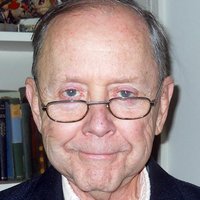Liberal Religion & a Failure of Nerve
Religion and Public Life: A Dilemma for Democracy, by Ronald Thiemann. (Washington: Georgetown University Press, 1996, 186 pp., $55 cloth, $17.95 paper)
IN Religion and Public Life Ronald Thiemann, dean of the Harvard Divinity School, makes a reasoned, civil case for allowing religion into the public square. That's the problem, though. Religious voices are acceptable in the public debate, Thiemann implies, provided they are as well-mannered as his own. And well-mannered religious voices no doubt should be heard. But is that enough?
I got some unexpected insight on that several years ago, when I found myself taking part in a discussion of religion and media (organized by a former Catholic priest) at a prestigious East Coast think tank. The discussants were journalists, academicians and religious types.
After hearing a fair amount of high-toned twaddle, I decided to say what I thought. Anti-Catholicism in the media remains a problem, I said, but since Vatican II it has become more sophisticated and subtle than it used to be, rewarding “good” Catholics and punishing “bad” ones.
As a case in point I took the op-ed page of The New York Times, then regularly graced by the pro-choice Catholic feminist Anna Quindlen. With some regularity, I pointed out, Quindlen used her column to air her differences with Pope John Paul II and New York's Cardinal John O'Connor on abortion and sexual morality.
Fair enough. But likewise as a matter of fairness, I asked, would the Times regularly offer the hospitality of its op-ed page to Cardinal O'Connor or, if not to him, to someone who thought about these matters pretty much as he and the Pope did? The question seemed to answer itself. “And,” I concluded, “that's the problem.”
As I remarked later, I felt like a man who'd told a dirty story at a tea party. One woman, who had worked for the Times until recently, and who said she used to be Catholic, was particularly vexed. She chewed me out at considerable length—mainly for insufficient sympathy to Anna Quindlen—then made this memorable statement: “Our secular society has certain needs and priorities of its own. And it will satisfy those needs and act on those priorities. And if people like you don't like it— that's your problem.”
Talk about epiphanies! Thiemann's book has a lot to recommend it. For example, his deconstructing of Mario Cuomo's overrated 1984 Notre Dame speech on abortion, conscience and the role of the Catholic politician is a classic. Thiemann writes: “[Cuomo] seems content to accept a teaching in his private or personal behavior but to disregard in his public or political behavior. But since this teaching asserts that abortion is the taking of innocent life, it is difficult to imagine that a morally sensitive person could accept that moral verdict in the private realm but somehow disregard it in the public realm.” Exactly.
The author's view of Supreme Court First Amendment adjudication during the last half-century also is praiseworthy. Church-state “separation” is outmoded, he contends. Judges should go back to Madison and grasp the point that both of the religion clauses—no establishment, free exercise—are directed to guaranteeing religious liberty.
Finally, though, the book's central argument embodies a debilitating loss of nerve, typical of liberal religion. As the price of letting religion take part in public debate, it prescribes that religion lose its bite. Thiemann writes: “People of faith should function in a democratic society as ‘connected critics’…. Connected critics engage in a form of ‘immanent’ criticism that is available only to those who are fully engaged in the very enterprise being criticized.”
And where, one might ask, does that leave the pre-Civil War abolitionists, Dorothy Day and Peter Maurin, the religious opponents of the Vietnam War, the less mannerly elements of the pro-life movement? Connected critics sound like terrific dialogue partners. They do not sound much like prophets.
To be sure, prophets can be abrasive and fanatical— even dangerous. They make people nervous. They threaten the established order. They come across as crackpots and cranks. Sometimes they deserve to be locked up. But restricting the religious voices allowed in the public debate to those that speak in acceptably modulated tones subverts the crucial role of religion as radical critic—very different from a “connected” critic—of liberal democracy itself. Thiemann absolutizes liberal democracy, and that has a religious name: idolatry.
Ultimately the question is whether God should sit in judgment on Caesar or Caesar on God. Religion in Public Life takes it for granted that in this best of all possible political systems—liberal democracy—it is Caesar who does the judging.
Russell Shaw is based in Washington, D.C.
- Keywords:
- December 29, 1996-January 4, 1997













